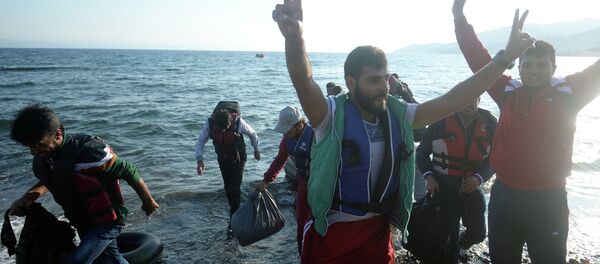By confiscating refugees’ personal belongings, the states are implementing federal laws that require asylum seekers to use up their own resources before receiving state aid.
Jonas Christoffersen, expert on Danish and international human rights law and an Executive Director of Denmark’s National Human rights Institute, criticized Brussels’ way of handling the refugee crisis, noting that in order not to accept asylum seekers EU states try to make life harder for migrants.
“One of the government’s main objections to the international media coverage is that the government has been totally misunderstood. We had a government spokesman the other day on CNN saying that it would be outrageous to say that the Danish government authorities would ever take jewelry away from refugees but in fact the original proposal by the government was that all assets of value could be taken off of refugees if the amount was over 500 euros and that was the end of story.”
Christoffersen further said that some assets that were considered very personal such as wedding rings and watches would not be taken even if they have significant value.
“The government came under significant pressure and they had to change the bill. What they are saying now is that you cannot take any jewelry or any asset which has specific personal value to an individual even if it has a significant value, but any asset representing more than 1,500 euros in value can be taken.”
“If you see tightening of a rule in one country you see it happen in the other country as well. Now it seems that it has become a game of pushing the refugees from your country into another country. One way to do that is to make the conditions for refugees worse in your own country,” the expert told Sputnik.
Christoffersen further spoke about the legality of this move. He said that his organization is closely scrutinizing all the bills that are presented to parliament from strictly legal point of few.
“In reality the legal protection against such actions is rather weak in many cases. But of course it can also be seen as positive because it will grant a wide scope of maneuver. Depending on what you think of this politically, whether you would be happy that politicians have a wider scope for maneuverability or whether you feel sad that there is little legal protection of migrants,” the expert noted.




